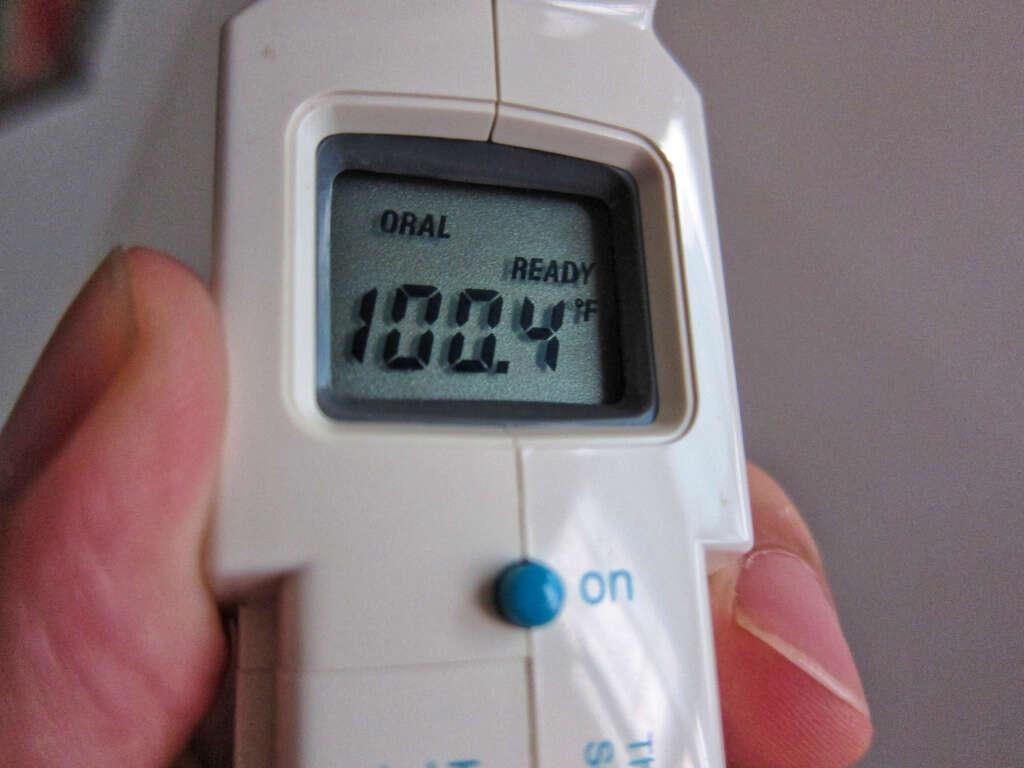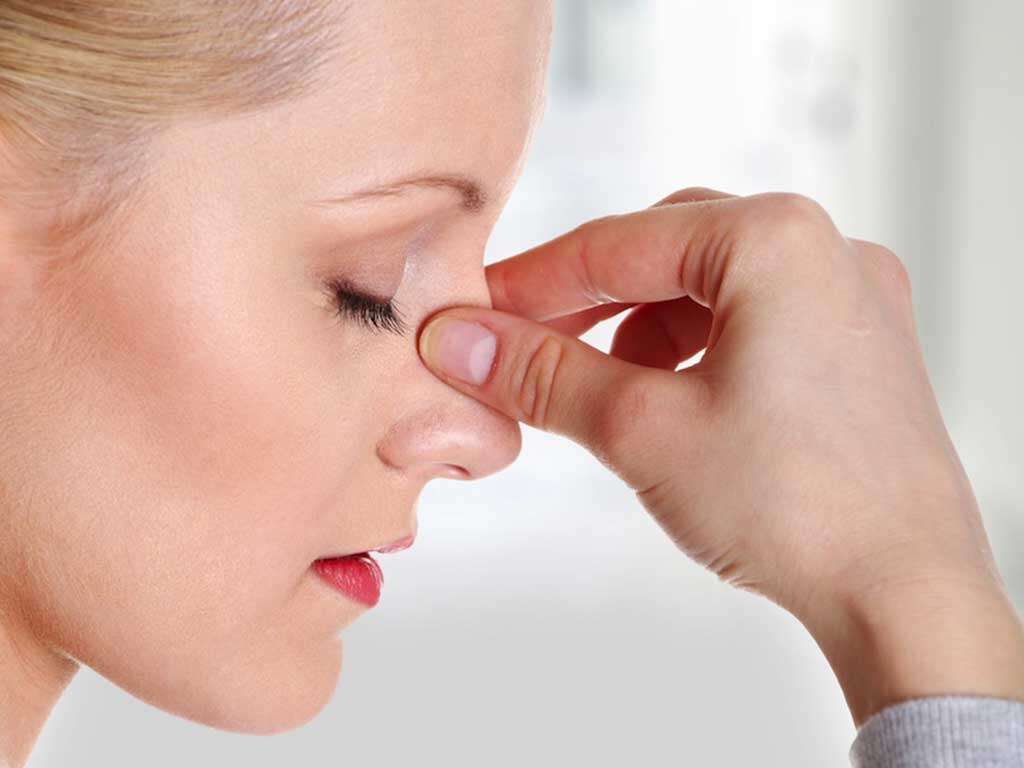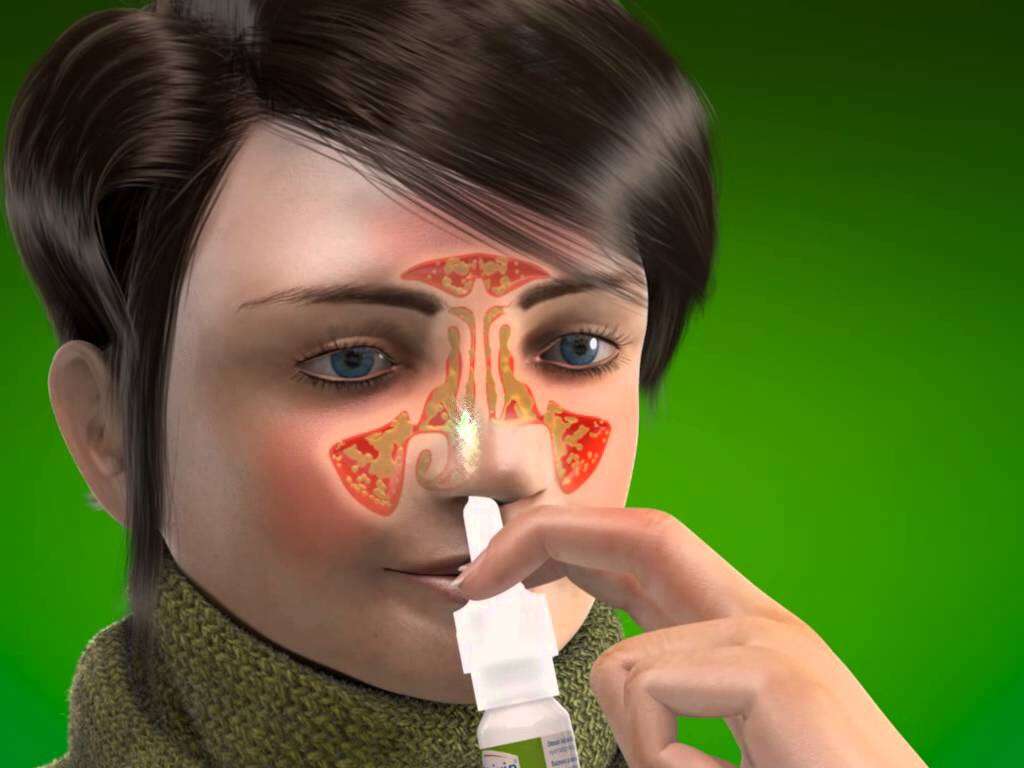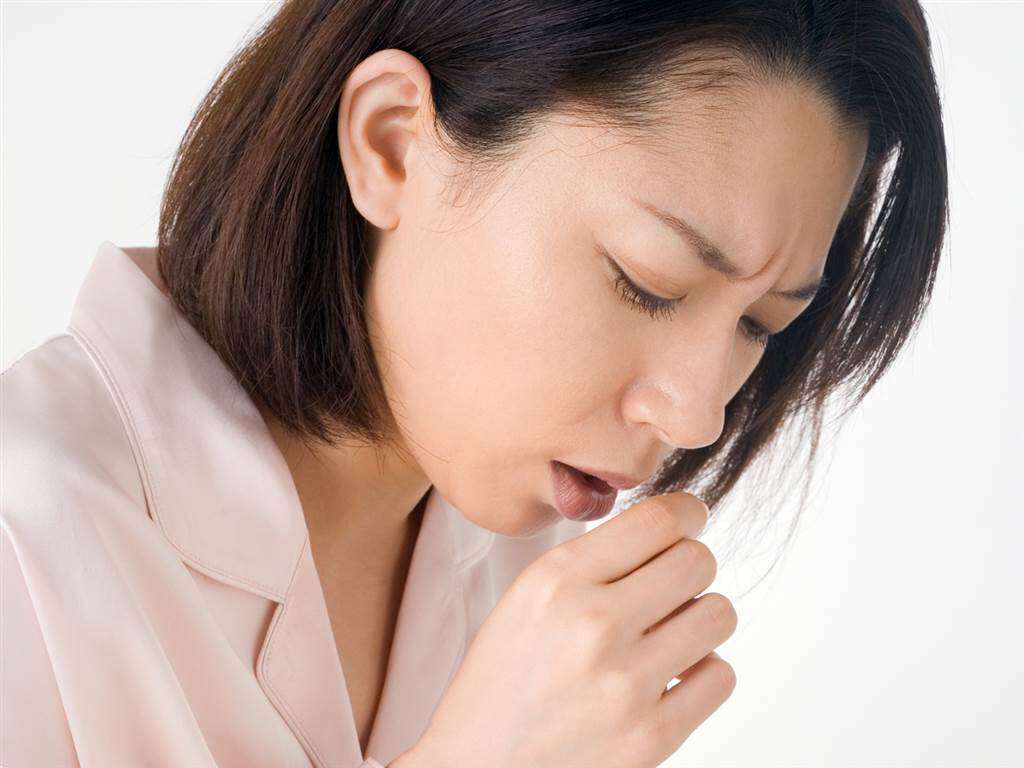10 Sinus Infection Symptoms
A sinus infection is the inflammation of the paranasal sinuses (mucosal lining) due to colonization of a pathogen. It is usually bacterial in origin (acute bacterial sinusitis) but other pathogens may be involved.
In cases where these sinus cavities get inflamed, the mucus and pus start collecting inside of them. When the holes that connect these sinus cavities to the nose become plugged, then the sinus cavities won’t normally drain leading to a sinus infection. These infections can be either acute or chronic.
The mucus and pus accumulation will lead to a sensation of fullness and heaviness in the face, pain and pressure in the face, headache, etc. Continue reading about the 10 most common sinus infection symptoms.

Symptom #1: Face Pain and Pressure
Because of the accumulation of the mucus and pus inside the sinus cavities and because of the clogged sinus drainage pathways to the nasal cavity, pain and pressure in the face around the affected sinus cavity are common. The congestion pressure on the nerves of the face occurs.
This pressure feels usually like a dull and throbbing pain located behind the nasal bones, cheeks, eyes or forehead where the sinus cavities are located. The pain and pressure on the face tends to get worse in cases when a person leans the head forward or when the face is touched.

Symptom #2: Headache
When one has a sinus infection, the pressure in the sinus cavities and in the head will rise. As the normal sinus drainage is impaired and the nasal mucosa has swelled, this inflammation of the sinuses will lead to a tightening of the muscles around the forehead and top of the head resulting in a tension headache.
Once treatment is started and the sinus cavities start draining down the throat again, the tension headache will get better. In many cases, these sinus headaches are confused with migraine headaches and tension headaches. However, in cases when you have a high fever, nasal discharge, bad breath, and an alteration of your taste and smell, you most likely have a sinus infection.

Symptom #3: Pain When Moving Head
Pain when moving the head, especially when leaning forward, is a sign of a sinus infection.
Because of the inflammation of the sinus membranes, clogged sinus cavities, accumulation of mucus and pus, and because the pressure inside the head increases, the sense of your sense of balance will be off leading to pain when moving the head, especially when leaning the head forward.

Symptom #4: Nasal Discharge
A clear and opaque nasal discharge is a sinusitis symptom. A yellow or greenish nasal discharge is another symptom of sinus infections, because of the collection of pus in the sinus cavities. In cases of a minor bleeding from the irritated mucosal lining of the sinus cavities, the nasal discharge can get tinged with blood.
This nasal discharge can last for weeks, even after the sinus infection is over because the body’s immune system, is still draining all the pus from the sinus cavities.

Symptom #5: Stuffy Nose
A stuffy and clogged nose is a common symptom in cases of a sinus infection. Because of the increased blood flow to the nose in cases when the immune system is trying to fight the infection, will lead to a swelling of the nasal mucosa.
A stuffy and clogged nose is not a symptom only in cases of sinus infections. A stuffy or clogged nose is usually caused by a common cold. How to tell the difference between a common cold and a sinus infection? This symptom tends to last longer in cases of sinus infections.

Symptom #6: Bad Breath
Bad breath, commonly known as halitosis is quite embarrassing sometimes. Having bad breath is something that nobody wants, but bad breath can result from many dental and oral problems, including sinus infections. Bad breath in cases of sinus infections results from the discharge that gets collected in the sinus cavities and which drips down the back of the throat.
Another problem that can lead to bad breath in cases of sinus infections is that this infection often leads to having a dry mouth which further exacerbates the problem.

Symptom #7: Cough
A productive cough is another symptom that commonly accompanies sinus infections. Often, sinus infections are mistakenly diagnosed as bronchitis or a common cold. However, a cough that is caused by a sinus infection tends to get worse during the night and especially in the morning when waking up, while in cases of a common cold or bronchitis a person tends to cough consistently during the day and during the night.
The reason the cough occurs mostly during the night and in the morning is because the sinus drains down the back of the throat when in a lying position, which will trigger a cough. A persistent cough during the night because of post nasal drip will lead to sleeping problems as well.

Symptom #8: Fever
A low-grade fever is another sinus infection symptom. In cases of nasal and sinus congestion the fever will not develop. but if an infection occurs your immune system will fight the infection and your core body temperature will rise.
As the infection progresses it tends to get worse, 38 degrees Celsius, and higher.

Symptom #9: Toothache
Tooth pain is another symptom of sinus infections, even though this is not a real tooth pain. A toothache results from the increased pressure inside the head because of the sinus inflammation, which will give the impression of a very bad toothache.
Usually, this kind of pain affects both sides of the face. If you touch your tooth it will not lead to an intense pain as it would in cases when there is a real problem with the tooth. The pain which spreads from the sinus cavities because of a sinus infection to the dental area is known as referred pain.

Symptom #10: Lost Senses of Smell and Taste
Difficulty breathing when your nose is clogged and the sinuses are inflamed will lead to a decreased sense of smell and taste. The sinus inflammation interferes with the natural ability of the sinuses to drain, interfering with the sense of smell and taste. Those suffering from sinus infections will lose these two senses.
This is usually only temporary and will resolve once the sinuses become unplugged as the air movement will be restored again, helping volatile molecules to settle in and provide a signal to the brain, letting you know that you are tasting something.










